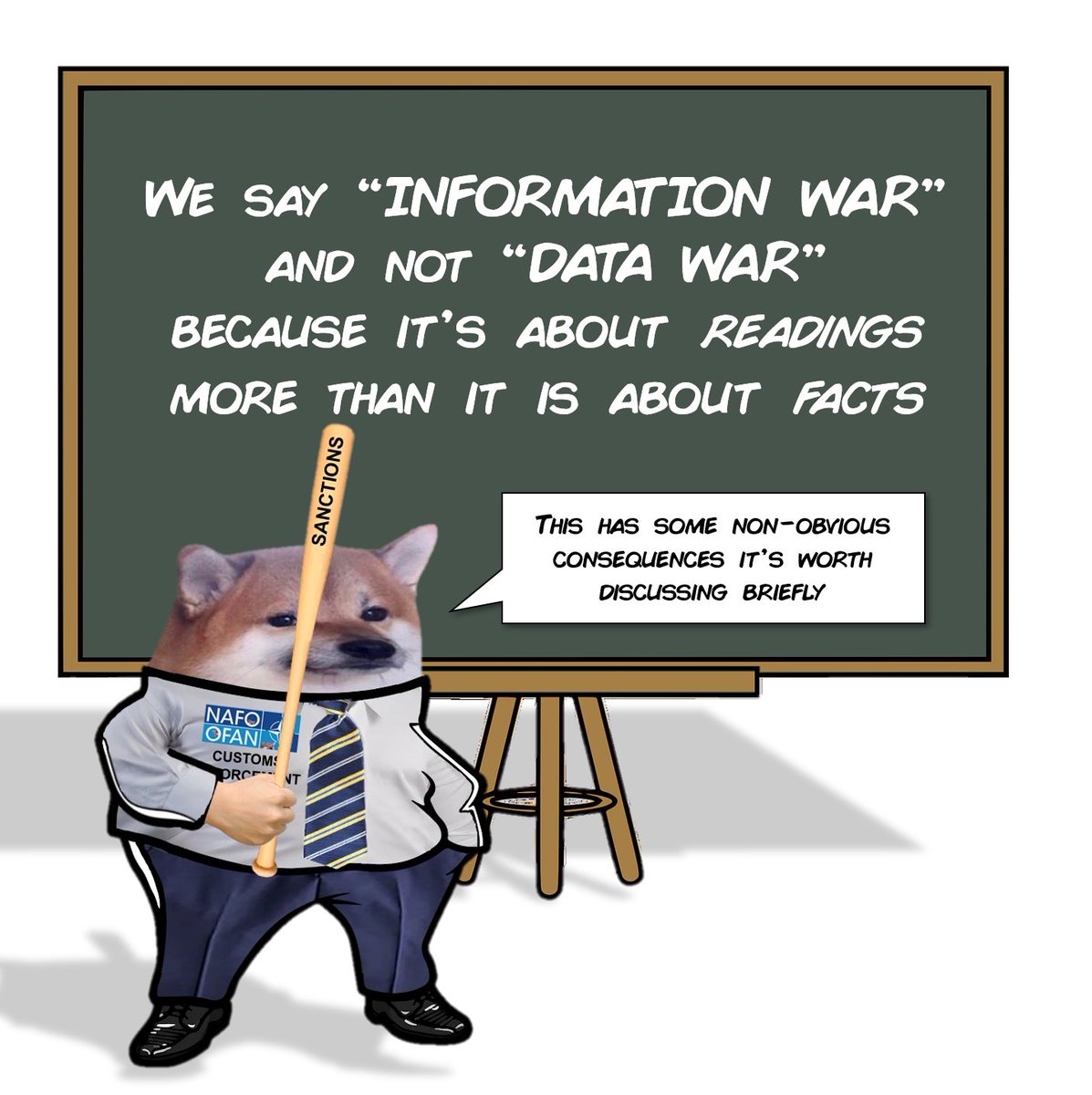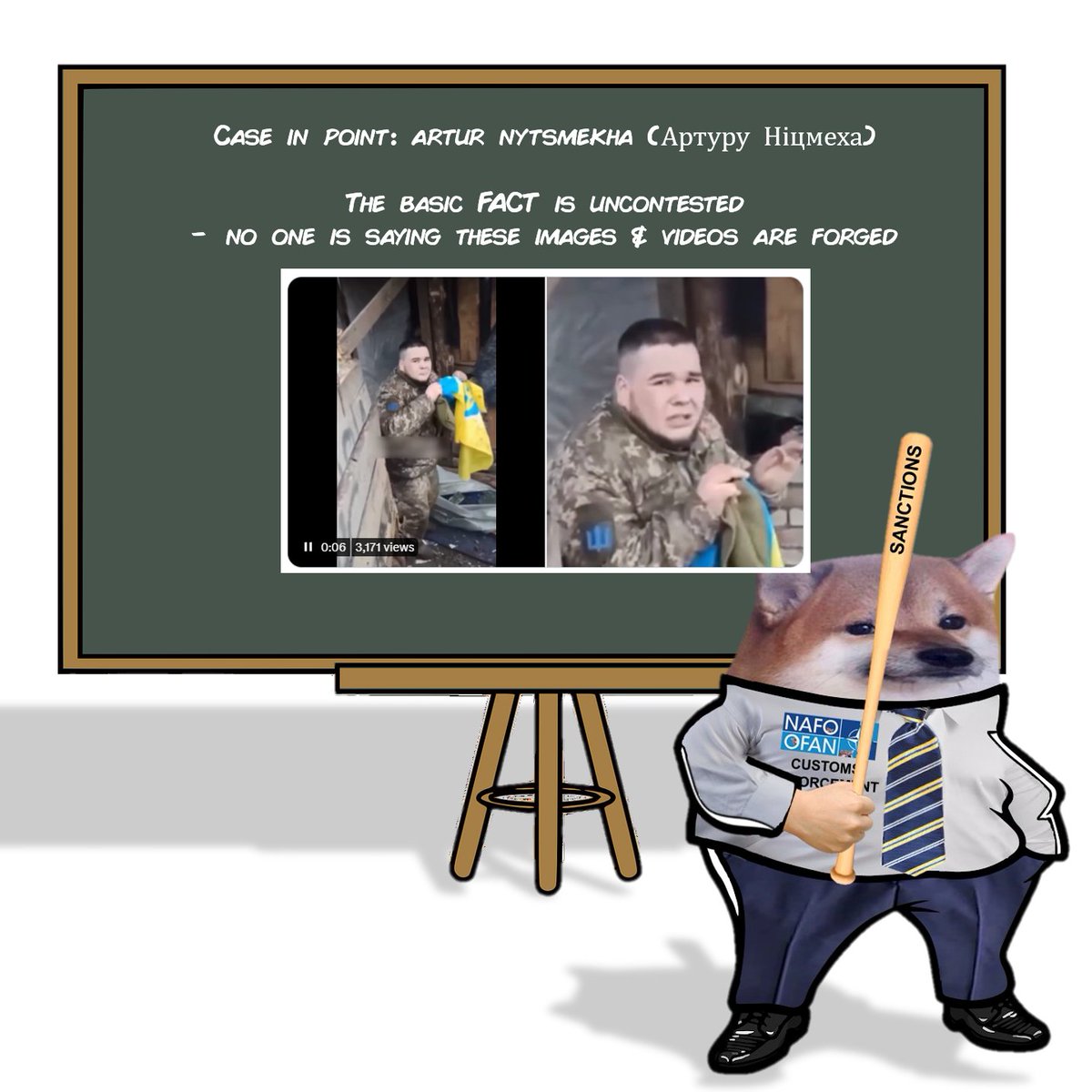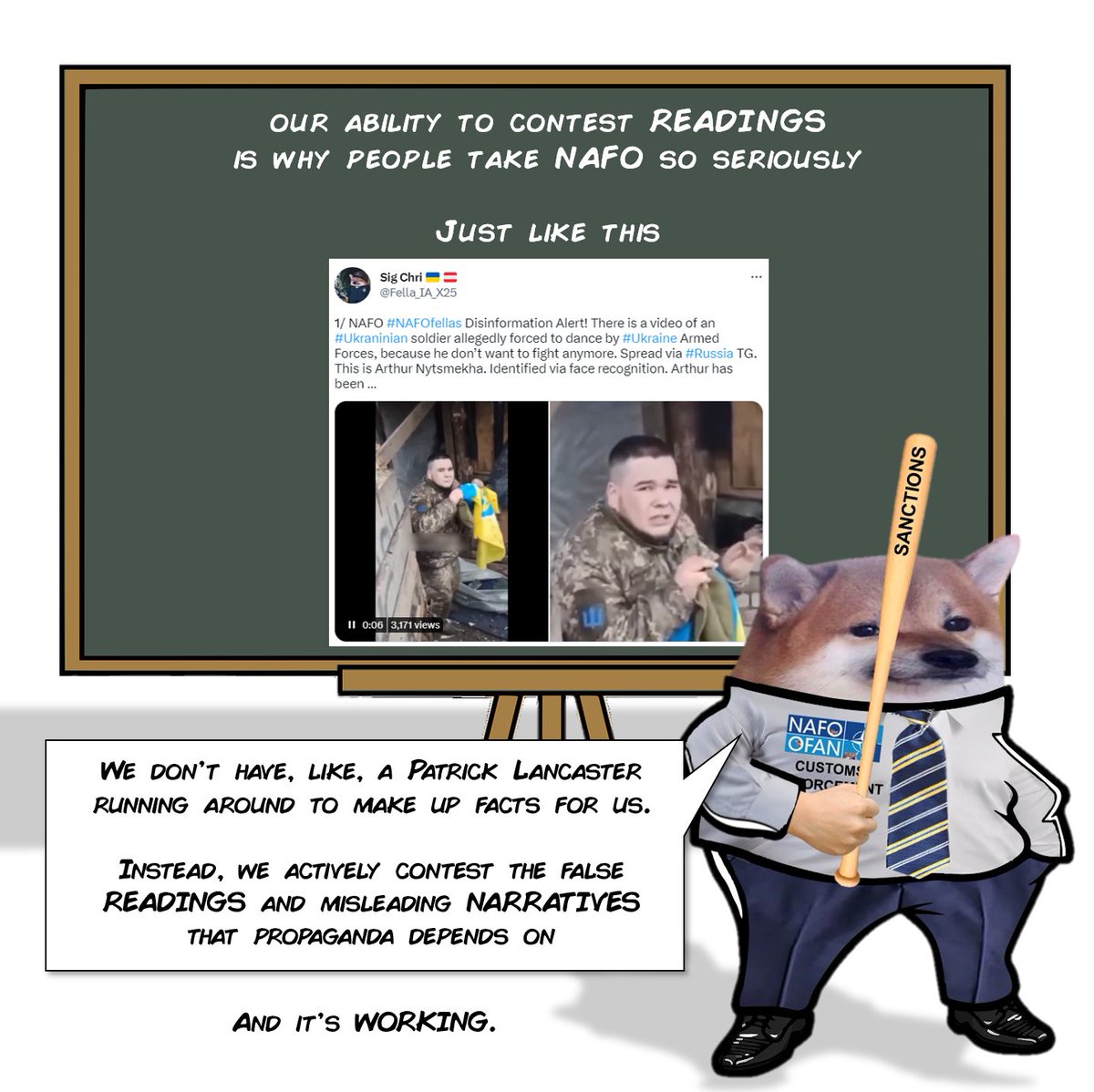We say "information war", I'd argue, because it's about information theory at its core, and it's not about raw data nor the manufacture of facts. 

It's unbelievably contentious to provide a complete account of how people read, but at least for disinfo, you could think of it like this:
A fact is an objectively existent thing/event.
A reading is what we make out of that.
The narrative is the story we tell around it.
A fact is an objectively existent thing/event.
A reading is what we make out of that.
The narrative is the story we tell around it.

People just, like, making stuff up is pretty easy to handle, we know what to call that.
So, like, George Santos.
As in, literally anything George Santos says about himself.
That's pretty clearly intentionally making stuff up, or disinformation.
So, like, George Santos.
As in, literally anything George Santos says about himself.
That's pretty clearly intentionally making stuff up, or disinformation.

When we deal with a true fact, though, and assign a misleading reading, or use it to advance or make more real ("reify") a false or hateful narrative, then it stops being so cut-and-dry. 

This sounds hand-wavey without examples (a lot of disinfo theory does, actually).
This is a really good example I just came across today courtesy of fellow... uh... #nafo #fella (#nafellow?)
That video isn't forged or a deepfake. No one is saying that.

This is a really good example I just came across today courtesy of fellow... uh... #nafo #fella (#nafellow?)
That video isn't forged or a deepfake. No one is saying that.
https://twitter.com/Fella_IA_X25/status/1625594969913188399?s=20&t=jT3To1-iGABrzaFb-3XQaw

The issue is the misleading framing - the way that it's produced, using a POW under coercion - and the misleading narrative coming from it.
It's not exactly a neat solution, but the solution on the table to contest those readings right now seems to be us.
As in, #NAFO.
It's not exactly a neat solution, but the solution on the table to contest those readings right now seems to be us.
As in, #NAFO.

I suppose we could say "even Mark Cuban gets it".
Copypasta and AI-generated disinfo are actually already out there, but chatGPT has everyone putting 2+2 together.
That 2+2=4 here means, you're not enacting a supply-side solution here for disinfo.
cnbc.com/2023/02/12/mar…
Copypasta and AI-generated disinfo are actually already out there, but chatGPT has everyone putting 2+2 together.
That 2+2=4 here means, you're not enacting a supply-side solution here for disinfo.
cnbc.com/2023/02/12/mar…
And if you want to enact a demand-side solution, you aren't doing it with an app, or for that matter anything else that's all "stagey" and cringe and artificial like that.
It requires something that looks a lot like NAFO actually.
It requires something that looks a lot like NAFO actually.
https://twitter.com/JoohnChoe/status/1603932242903937024?s=20&t=jT3To1-iGABrzaFb-3XQaw
• • •
Missing some Tweet in this thread? You can try to
force a refresh











